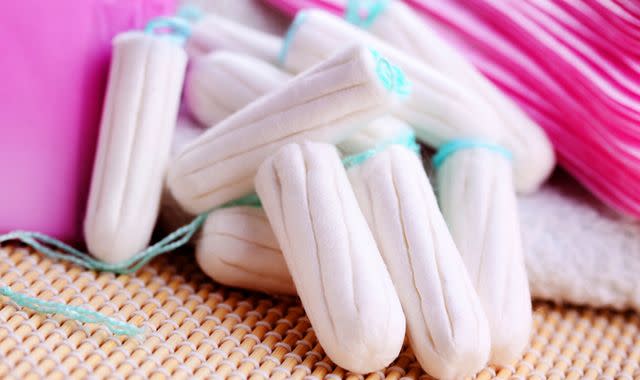Arsenic, lead and other toxic metals found in tampons, study says

Toxic metals have been found in tampons, scientists say, which could put women at greater risk of potentially fatal health conditions.
Researchers from the University of California, Berkeley examined 30 tampons from 14 different brands and found all 16 metals they were testing for in each type.
The metals found included arsenic, lead, mercury, nickel, copper, and iron, among others.
Findings of metal levels varied depending on whether the tampons were sold in the US, UK, or EU, whether they were organic or not, and whether they were branded or supermarket lines.
According to the study, between 52% and 86% of women in the US use tampons during their period.
They are particularly dangerous if contaminated with harmful substances as they come into direct contact with the vagina, where they are more easily absorbed.
Metal absorption has been found to increase the risk of dementia, cancer, infertility, and diabetes - creating issues in the liver, kidneys and brain, as well as the cardiovascular, nervous and endocrine systems.
It can also be harmful to unborn babies.
Read more
New pill 'increases chance of pregnancy'
'Miracle' Parkinson's treatment cures tremors
Jenni Shearston, lead author of the study, said: "Despite this large potential for public health concern, very little research has been done to measure chemicals in tampons.
"To our knowledge, this is the first paper to measure metals in tampons. Concerningly, we found concentrations of all metals we tested for, including toxic metals like arsenic and lead."
No 'safe' level of metal
Organic tampons were found to have higher levels of arsenic, while non-organic ones had more lead in them, according to the study.
Metals can make their way into tampons through various means - by the cotton absorbing contaminated water, air or soil, or through manufacturers intentionally adding it as part of a pigment.
There is no "safe" level of any of the metals tested for, the researchers warned.
Ms Shearston added: "I really hope that manufacturers are required to test their products for metals, especially for toxic metals.
"It would be exciting to see the public call for this, or to ask for better labelling on tampons and other menstrual products."

 Yahoo News
Yahoo News 
